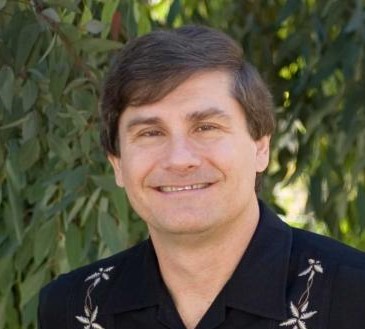Alex Filippenko- 2004 Carl Sagan Prize Recipient
Alex Filippenko received his bachelor’s degree in Physics (1979) from the University of California, Santa Barbara, and his doctorate in Astronomy (1984) from the California Institute of Technology. He subsequently became a Miller Postdoctoral Fellow at the University of California, Berkeley. In 1986 he joined the faculty at UC Berkeley, where he has remained through the present time. A member of the International Astronomical Union, he has served as President of the Astronomical Society of the Pacific and as Councilor of the American Astronomical Society.
An observational astronomer who makes frequent use of the Hubble Space Telescope and the Keck 10-meter telescopes, Filippenko’s primary areas of research are exploding stars (supernovas), active galaxies, black holes, gamma-ray bursts, and the expansion of the Universe. He and his collaborators recognized a new class of exploding star, obtained some of the best evidence for the existence of small black holes in our Milky Way Galaxy, and found that other galaxies commonly show vigorous activity in their centers that suggests the presence of supermassive black holes. His robotic telescope at Lick Observatory is the world’s most successful search engine for nearby exploding stars, having discovered nearly 400 of them in the past few years. He also made major contributions to the discovery that the expansion rate of the Universe is speeding up with time (“the accelerating Universe”), driven by a mysterious form of dark energy — the top “Science Breakthrough of 1998,” according to the editors of Science magazine.
Filippenko’s research accomplishments, documented in over 430 published papers, have been recognized with several major awards, including the Newton Lacy Pierce Prize of the American Astronomical Society (1992) and the Robert M. Petrie Prize of the Canadian Astronomical Society (1997). He is one of the world’s most highly cited astronomers. A Fellow of the California Academy of Sciences, he has also been a Guggenheim Foundation Fellow (2001), a Phi Beta Kappa Visiting Scholar (2002), and a distinguished visiting lecturer at numerous colleges and universities, including the Spitzer Lecturer at Princeton University.
A dedicated and enthusiastic instructor, Filippenko has won the two most coveted teaching awards at UC Berkeley, each of which is generally given at most once per career. Also, in 1995, 2001, 2003, and 2004 he was voted the “Best Professor” on campus in informal student polls. He has delivered hundreds of public lectures on astronomy, and he has played a prominent role in science newscasts and television documentaries such as “Mysteries of Deep Space,” “Stephen Hawking’s Universe,” and Nova’s “Runaway Universe.” With Jay M. Pasachoff, he coauthored an award-winning introductory astronomy textbook, “The Cosmos: Astronomy in the New Millennium” (2001; 2004, second edition). In 1998 he produced a 40-lecture introductory astronomy video course with The Teaching Company, and in 2003 he taped a 16-lecture update on recent astronomical discoveries. Filippenko has twice wowed audiences as a speaker at Wonderfest, the Bay Area Festival of Science.Besides being an avid tennis player and hiker, he enjoys world travel and is addicted to total solar eclipses, having seen 7 of them. A science enthusiast for as long as he can remember, Filippenko’s passion for astronomy began at age 14, when he accidentally “discovered” Saturn while viewing stars through a small telescope he received from his parents.


